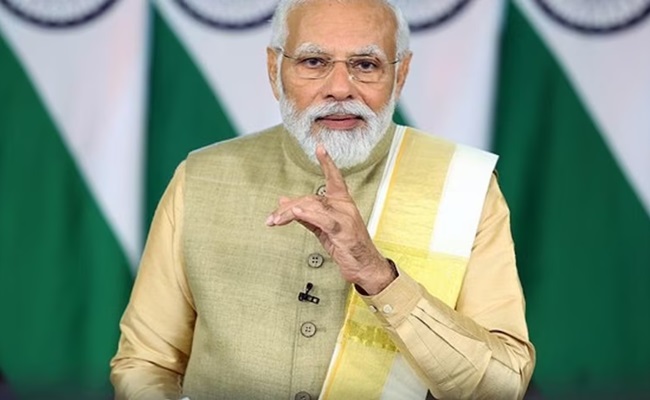
Political News

Prime Minister Narendra Modi leads by example and makes it a point to abide by the old adage ‘practise what you preach’.
From ending VIP culture to cutting down red tape to promoting ease of doing business, several trailblazing initiatives form the hallmark of the Modi government. And, the Prime Minister has led from the front in setting and achieving all these milestones.
In a video shared by Modi Bharosa, a popular X handle, the PM recounts many instances where he took the lead in furthering his call and effort to dismantle the VIP culture.
Recalling his mother’s demise, PM Modi says she passed away in a government hospital and her cremation was also done at a state government-run crematorium.
Talking about the vaccination drive against Coronavirus, PM Modi says that he could have got the vaccine administered early but waited for his number.
“I could have taken the vaccine early but I decided to take it only when my number comes,” says PM Modi.
Talking about ending VIP culture during Republic Day celebrations, PM Modi says that the shramiks and workers, who built the Central Vista, were made special guests at the occasion.
Talking about University convocations, PM Modi says that he always advocated for participation of the poor children in those events.
“I used to tell the organisers that the first 50 seats in the convocation ceremony should be reserved for students, belonging to the marginalised class. They should also have an opportunity to witness the grand event,” says the PM.
In the past 10 years of the Modi government, many ground-breaking and pioneering initiatives designed on the lines of ‘Sabka Saath, Sabka Vikas’ have paved the way for taking the 140 crore population along.
The disappearance of red beacons from vehicles of government servants was one of the first moves to end VIP culture.
PM Modi, in his Mann ki Baat address, in 2017 itself, had given a call for ending the VIP culture with EPI (Every person is important) culture.
Advertisment